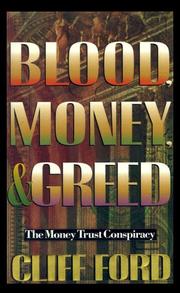The Most Obvious Man Of The Hour
Henry Kissinger, U.S. secretary of state in the 1970s, once asked, "Who do I call if I want to reach Europe?" A new poll shows a trans-Atlantic gap in the answer today.
Most Americans think the call should be placed to Gordon Brown in London. But Europeans - especially the French - tend to think Angela Merkel should pick up the receiver in Berlin, according to the poll by Harris Interactive for the International Herald Tribune and France 24 television.
When asked what country is the leader of Europe today, a majority of Germans, perhaps unsurprisingly, picked Germany: 57 percent, the same figure as among Spaniards. Among the French, that figure rose to an astonishing 68 percent. The Italians and British were divided on the question between Germany and Britain.
On the other side of the Atlantic, 63 percent of Americans saw Britain as Europe's leading nation.
Looking to the future, the breakdown was roughly the same across the board when people from the six nations were asked about which country will have the most influence in Europe over the next decade.
When asked about political personalities, Europeans chose Merkel, the chancellor of Germany, as No. 1, with President Nicolas Sarkozy of France as a distant second choice. Americans, by contrast, named Brown, the prime minister of Britain, as most influential.
These questions loom large in Europe with the prospect of an election in January for a newly empowered presidency of the European Council, a post that currently rotates every six months among the 27 members of the European Union. Under the Lisbon treaty, which EU leaders agreed to in December after the defeat of a proposed constitution, the leaders would choose a president of the European Council for a 30-month term, renewable once.
The Lisbon treaty, which is moving toward ratification by Jan. 1, also envisions retaining the presidency of the European Commission, a five-year post currently held by José Manuel Barroso, thus giving two possible answers to Kissinger's question.
Two political bloggers in Europe, Jan Seifert and Jon Worth, want to see that number reduced to one. Their Web site, whodoicall.eu, has a petition calling for a merger of the two presidencies.
Worth said in an interview that the commission presidency is "democratically legitimate," because members of the European Parliament vote on it. The council president, by contrast, will be appointed by vote of the 27 heads of state. Worth argues that the commission president has more legitimacy because the heads of state are rarely chosen in elections where European politics are at issue, in contrast to members of the European Parliament.
"What concerns us would be the possibility of a strong council president and a weak commission president," Worth said. "In the end, you have to look at leadership and legitimacy."
But a substantial minority of Europeans disagree with Seifert and Worth. The poll showed widespread opposition to the very concept of a European president, much less combining the roles of the two future presidencies. While opposition did not reach a majority in any country, Britons were most opposed, at 46 percent, while Italians were the least, at 14 percent.
"The idea does sound a bit scary," Worth conceded. "You have to ask, though, what the alternative is."
When offered a laundry list of possibilities for a possible "president of Europe," along with the choice that there be no president, only a few individuals reached a threshold of 10 percent in any country. Merkel was named in France, Germany, Italy and Spain. Former Prime Minister Tony Blair of Britain was named in Britain, Italy and the United States. People in two countries named favorite sons: Jacques Delors, former European Commission president, in France, and former Prime Minister Felipe González in Spain.










No comments:
Post a Comment